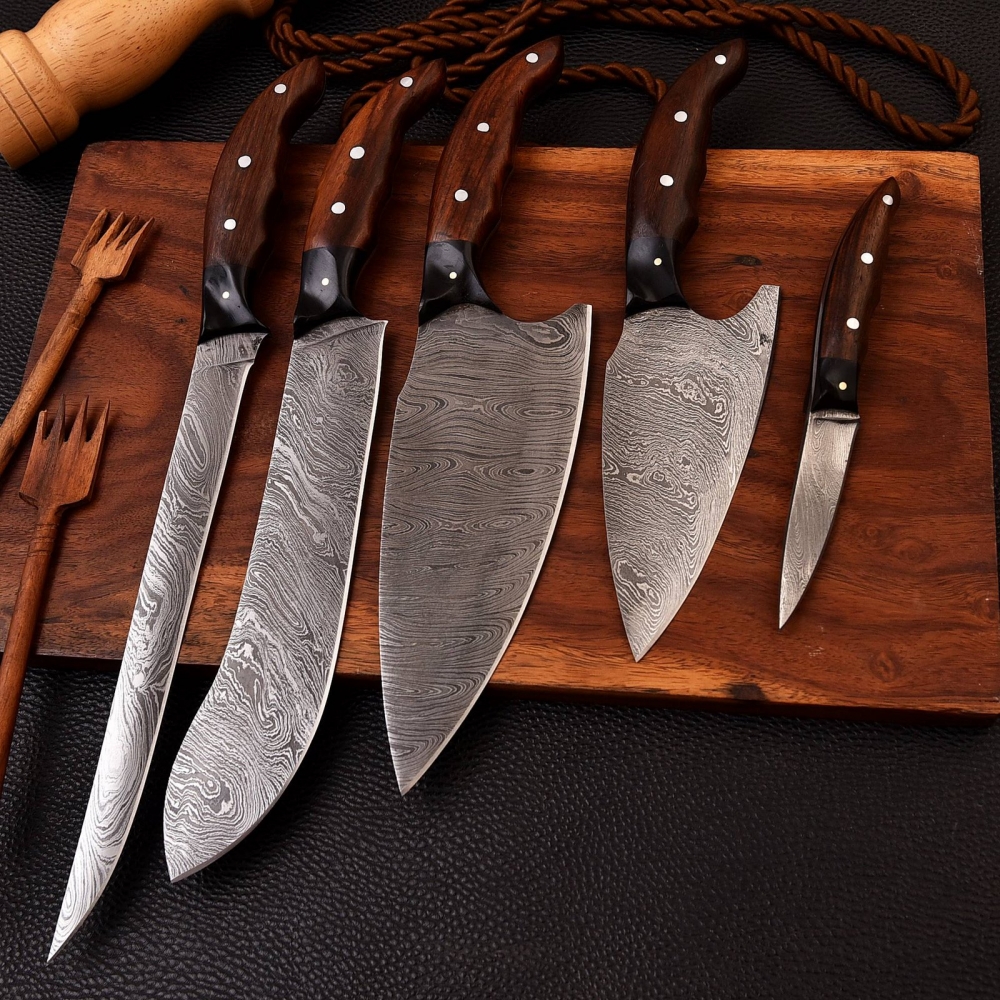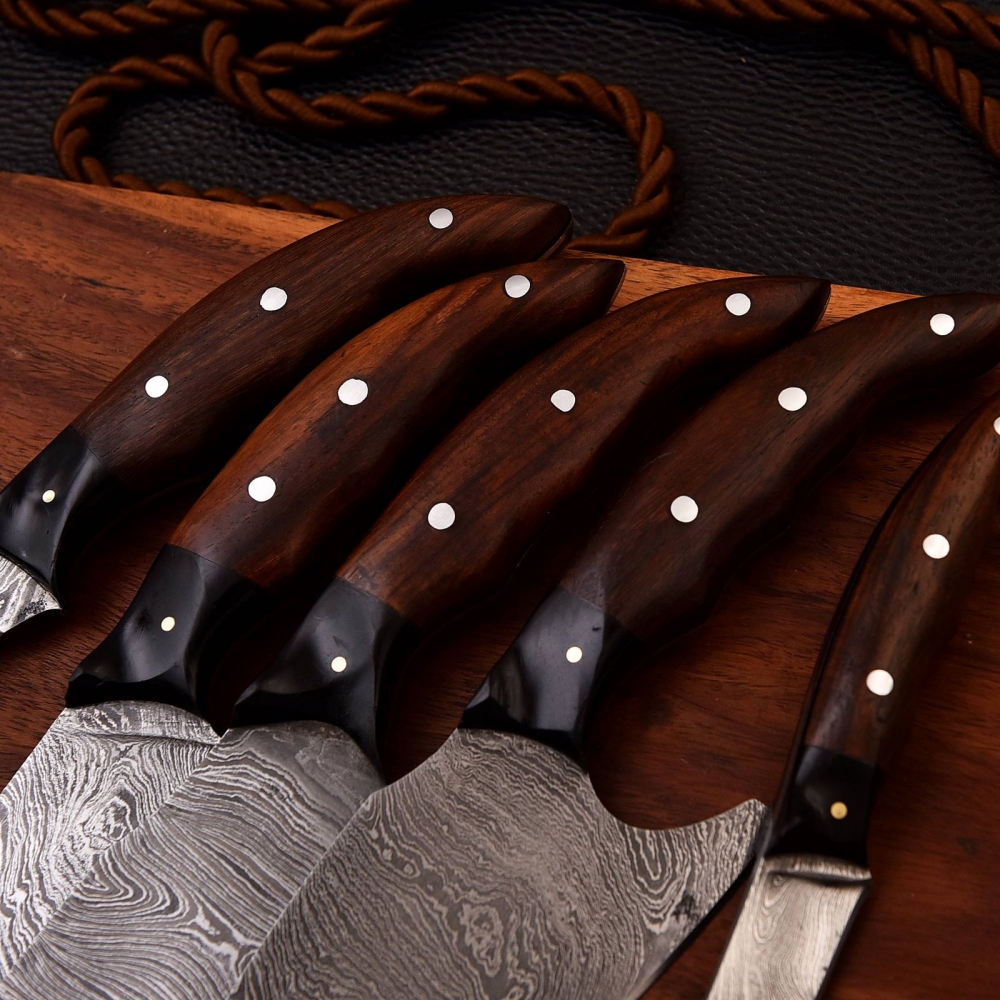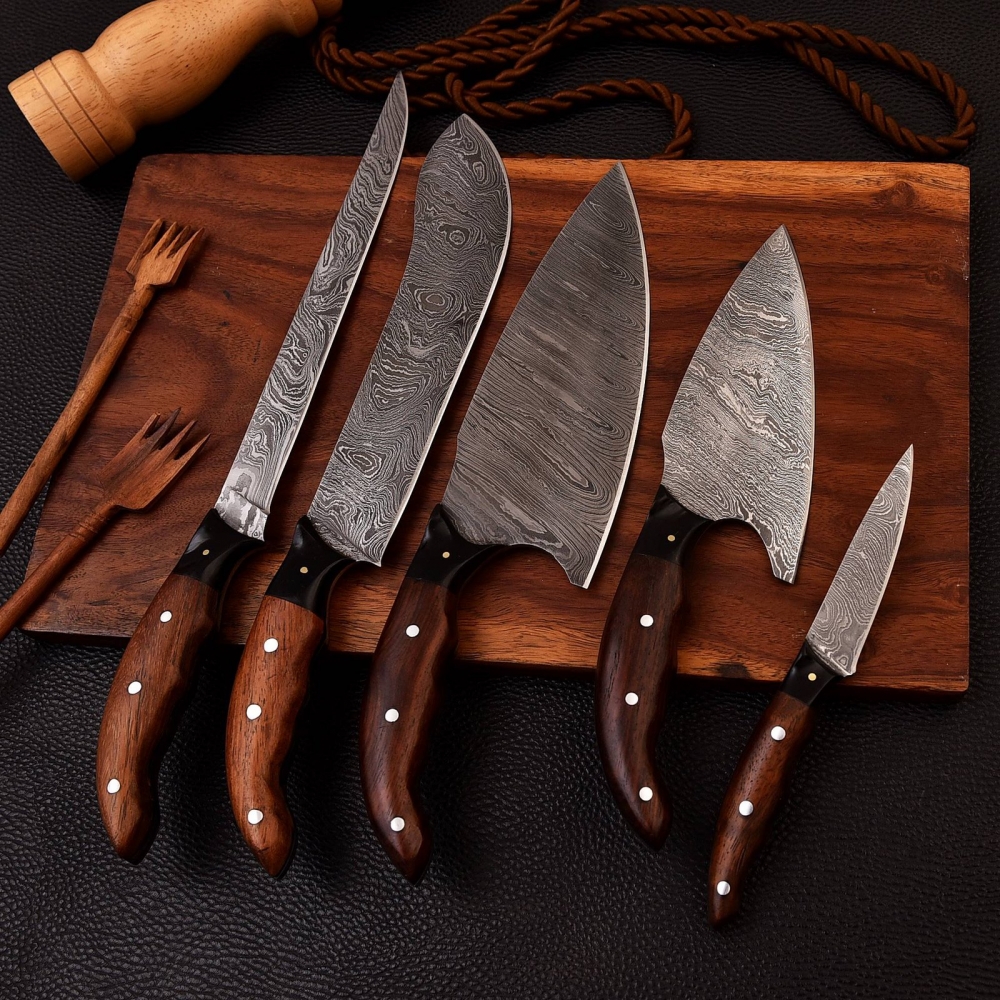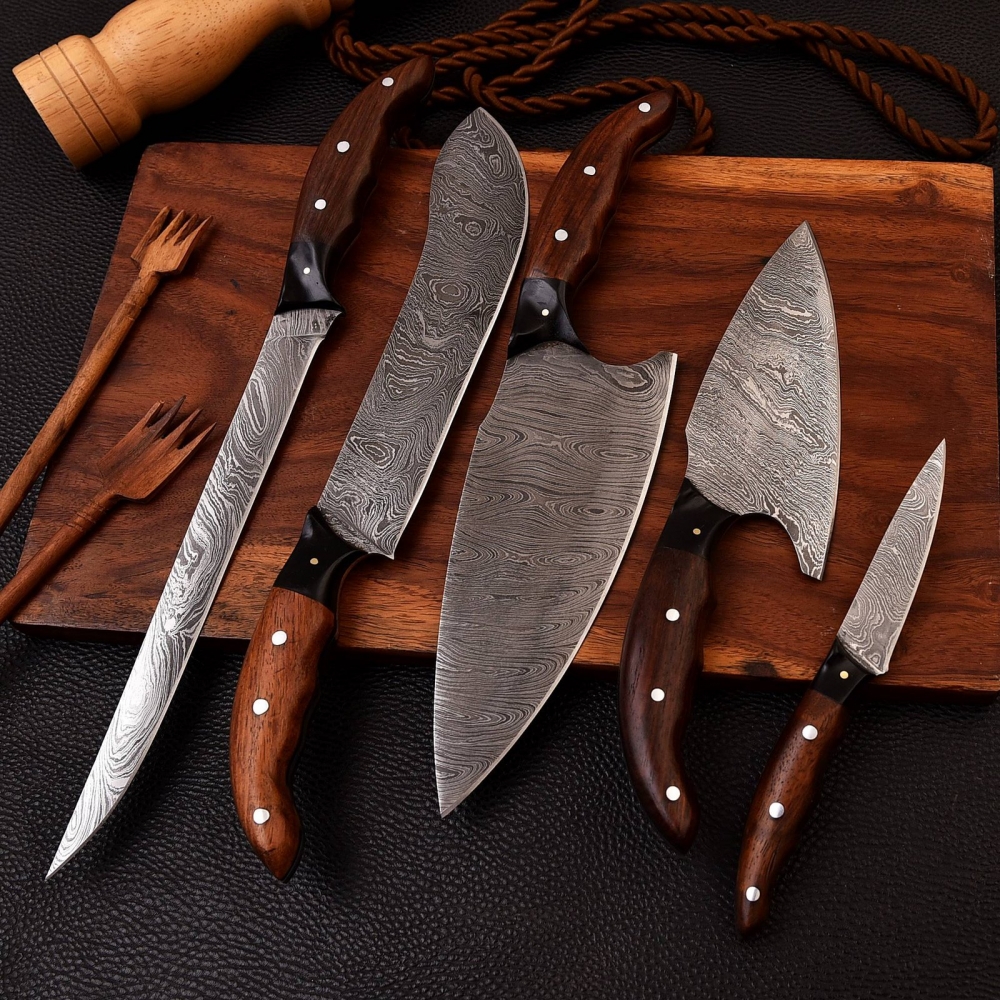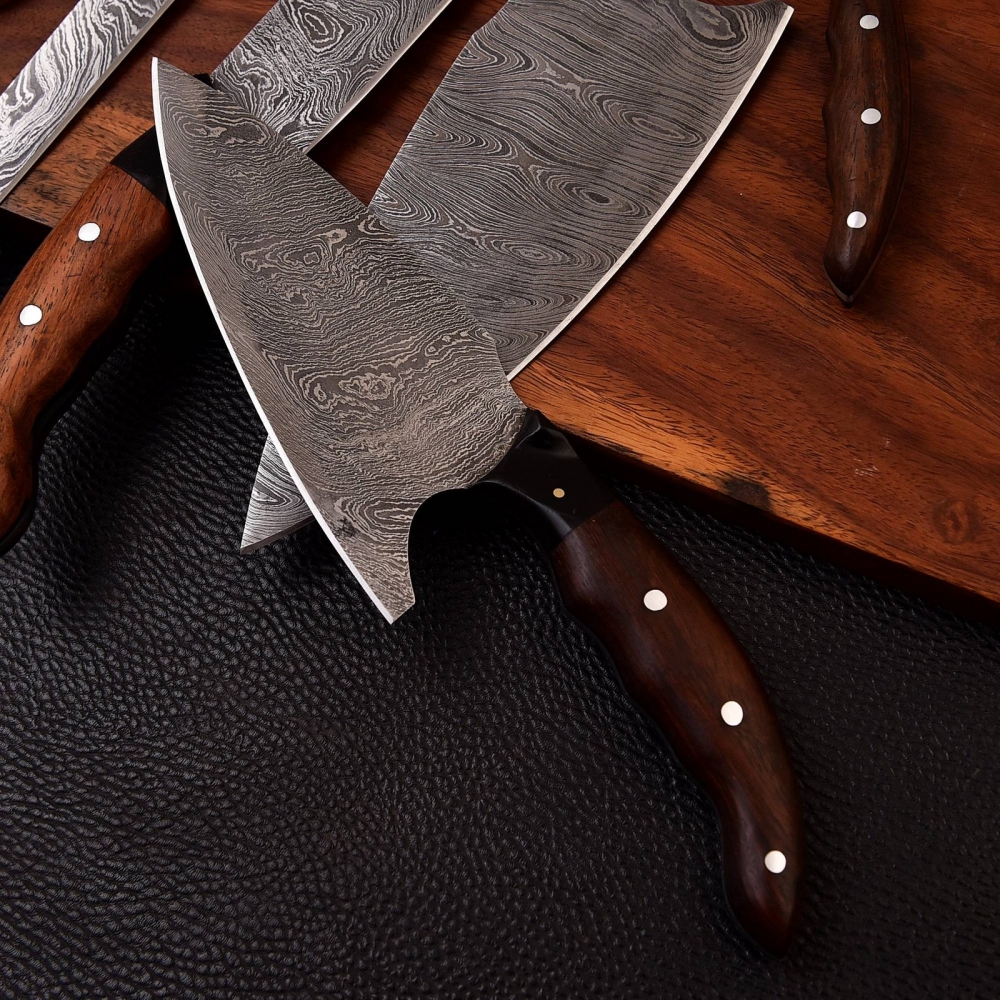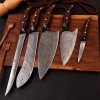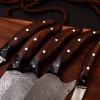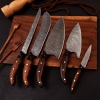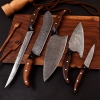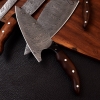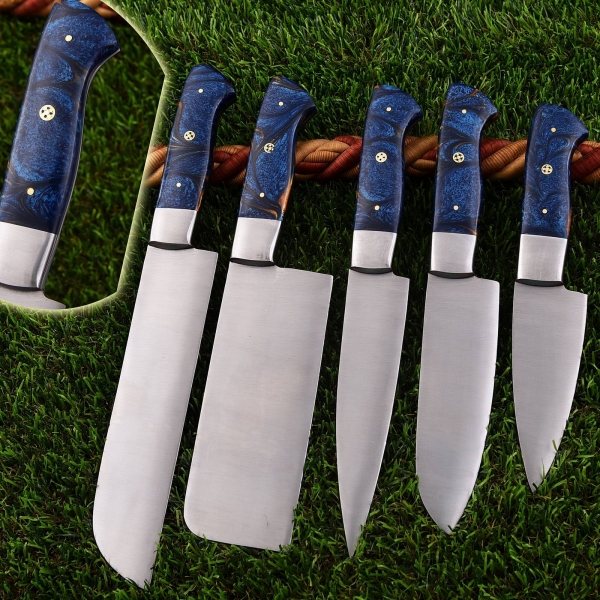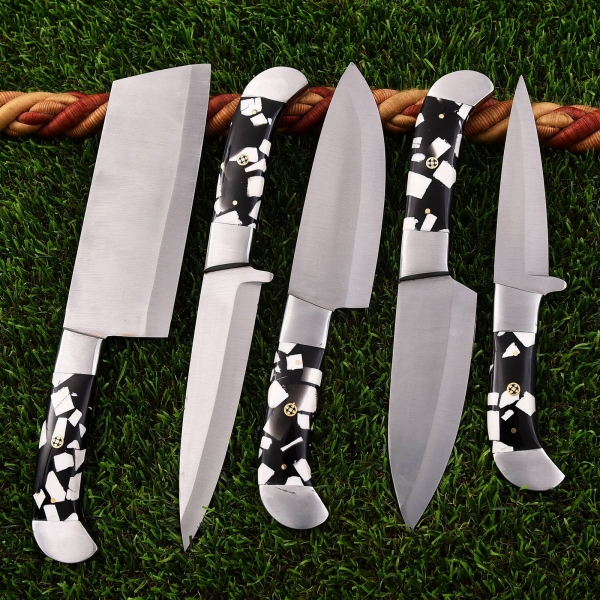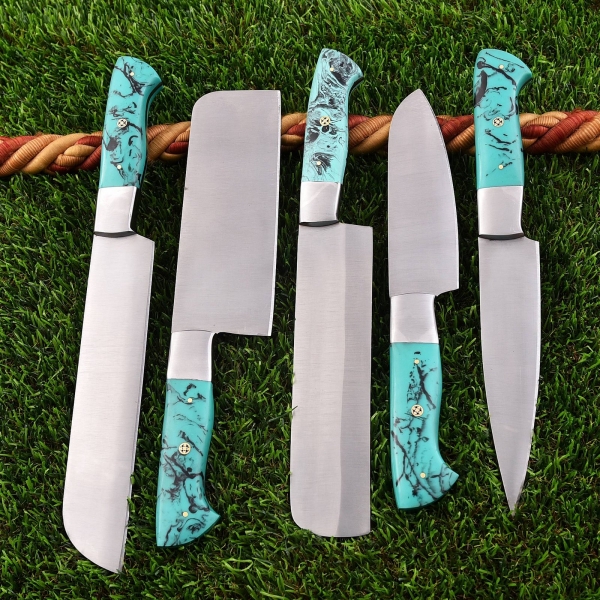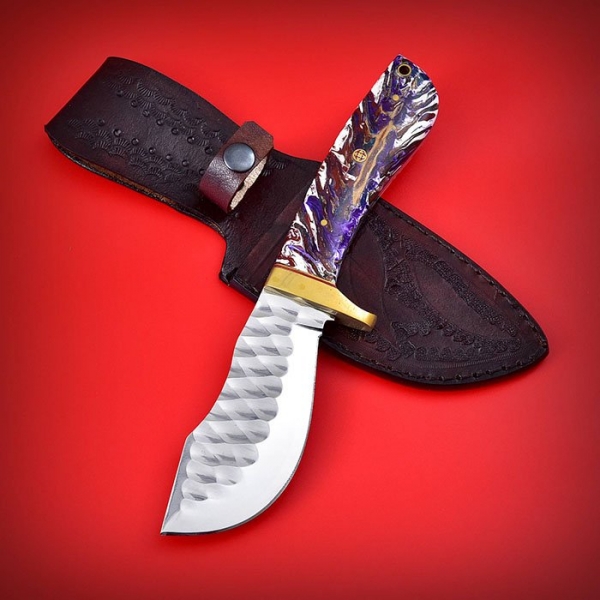Posted on 2024-11-24
chopping herbs and nuts
dicing and slicing fruits, vegetables and meat
mincing and crushing garlic
cutting through melons
Cleaver: easily breakdown meat bones and dense foods. They have a short wide blade that resembles an ax with a straight edge that makes them useful for chopping and hacking with an up and down motion.
Chopping vegetables
Slicing and tenderizing meat
Crushing garlic
Boning knife; can have either a narrow or wide blade that comes in flexible and semi flexible options
Separating meat from bones while reducing the amount of wasted meat
Cutting through cartilage
Precisely trimming fat
Filleting fish
Paring knife: are light weight and have a short blade with a pointed tip to make them useful for delicate knifework
peeling skins for garnishes
deveining shrimp
trimming excess fat off meat
A butcher knife is a universal knife for skinning, trimming, filleting and cutting large pieces of meat. Butcher knives have a long, thin blade that is sometimes rounded to the top. This allows you to cut a large piece of meat in one stroke
Knife maintenance: proper sharpening, cleaning and storage are all important knife safety tips
Clean your knife as soon as you are done using it to prevent cross contamination
Wash your knifes by hand rather than running them through the dishwasher
Regularly sharpen and hone your knives to keep the blade sharp
Allow knives to air dry completely before storing them
Always wash your knives when you receive the shipment because oil is used to keep them safe from rust
We recommend a professional tune-up at least once a year, even if you are sharpening at home. If you do not sharpen your own knives, we recommend you have them sharpened when they start to feel dull. A sharp knife is always safer than a dull knife.
Product description
Low carbon and high carbon mixture welded, forged and hammered several times to obtain up to 200 layers
wood handle is easy to hold and handle , black g 10 bolsters are installed to increase the beauty of knives
Condition
- Unused (new item)
In original packaging?
- No, but it is packaged
Imperfections (if any)
NothingCountry of manufacture
- Pakistan
Brand/Blacksmith
- Other
Blade shape
- Chef's knife (Gyuto)
Blade length (mm)
0Product weight (g)
0Steel category
- Carbon steel
Steel type
- Other
Steel hardness (HRC)
- Unknown
Handle material
- Natural (wood)
Seller's return policy
- No returns (5-day Buyer Protection Return Policy for Eligible returns still applies)
Product Video
Chef knife: is the most versatile type of kitchen knife making it a must have item in every kitchenchopping herbs and nuts
dicing and slicing fruits, vegetables and meat
mincing and crushing garlic
cutting through melons
Cleaver: easily breakdown meat bones and dense foods. They have a short wide blade that resembles an ax with a straight edge that makes them useful for chopping and hacking with an up and down motion.
Chopping vegetables
Slicing and tenderizing meat
Crushing garlic
Boning knife; can have either a narrow or wide blade that comes in flexible and semi flexible options
Separating meat from bones while reducing the amount of wasted meat
Cutting through cartilage
Precisely trimming fat
Filleting fish
Paring knife: are light weight and have a short blade with a pointed tip to make them useful for delicate knifework
peeling skins for garnishes
deveining shrimp
trimming excess fat off meat
A butcher knife is a universal knife for skinning, trimming, filleting and cutting large pieces of meat. Butcher knives have a long, thin blade that is sometimes rounded to the top. This allows you to cut a large piece of meat in one stroke
Knife maintenance: proper sharpening, cleaning and storage are all important knife safety tips
Clean your knife as soon as you are done using it to prevent cross contamination
Wash your knifes by hand rather than running them through the dishwasher
Regularly sharpen and hone your knives to keep the blade sharp
Allow knives to air dry completely before storing them
Always wash your knives when you receive the shipment because oil is used to keep them safe from rust
We recommend a professional tune-up at least once a year, even if you are sharpening at home. If you do not sharpen your own knives, we recommend you have them sharpened when they start to feel dull. A sharp knife is always safer than a dull knife.
